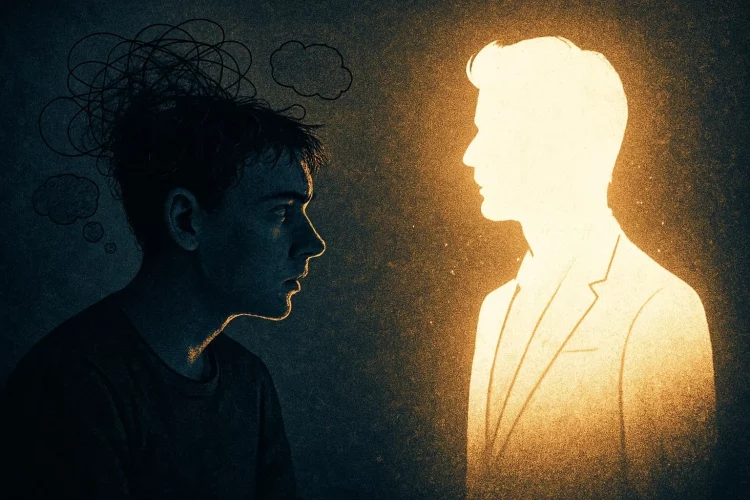Introduction
In a world that thrives on visibility—whether in the professional, social, or digital spheres—the spotlight can be both a gift and a curse. From the boardroom to the red carpet, individuals often find themselves under intense scrutiny. But does the spotlight reveal the core of who we are? Does it showcase our vulnerabilities, or does it bring out our hidden strengths? In this exploration, we will delve into the dual nature of public exposure and examine how it can either build or break us.
The Dual Nature of the Spotlight
The “spotlight” metaphor, whether it refers to literal fame or figurative attention, is a powerful force. It can transform lives, shape careers, and even impact psychological well-being. Whether on a global stage or in the daily dynamics of life, the way individuals respond to the spotlight often reveals both their inner strengths and vulnerabilities.
Spotlight as a Catalyst for Strengths
For many, being in the spotlight can be a transformative experience, one that unlocks latent potential. It serves as a platform to showcase skills, talents, and attributes that would otherwise remain hidden. A talented musician, an effective leader, or an innovative entrepreneur may find that being in the spotlight amplifies their abilities, presenting them as icons of success.

Visibility as Validation
One of the core reasons why the spotlight can magnify strength is that it provides external validation. Public recognition affirms an individual’s worth and contributions, whether through applause, awards, or accolades. This validation not only boosts confidence but also solidifies one’s identity and place in society.
The Spotlight as a Confidence Builder
Some people thrive in high-pressure environments, with the spotlight becoming a stage for self-expression. Consider athletes who break world records or artists whose works resonate with millions. For these individuals, the spotlight acts as a crucible, refining their skills and forcing them to meet the demands of public perception. In many cases, it is precisely under scrutiny that they discover the depth of their capabilities.
Spotlight as a Revealer of Vulnerabilities
While the spotlight can build strength, it can also expose raw vulnerabilities. The constant pressure to perform, maintain a particular image, or meet the expectations of others can be overwhelming. For many, the spotlight does not illuminate their best features; instead, it casts a harsh light on their insecurities, fears, and weaknesses.
The Burden of Perfection
The pressure to appear flawless can be suffocating. Public figures—whether politicians, celebrities, or CEOs—often struggle with the expectation that they should be perfect in every way. A single misstep, an offhand remark, or a momentary lapse in judgment can lead to significant backlash. The spotlight does not forgive, and the consequences of vulnerability can be magnified.
Psychological Impact of Constant Scrutiny
The psychological toll of being under constant observation can be immense. Studies have shown that individuals who experience intense public scrutiny are more likely to develop anxiety, depression, and even identity crises. In this way, the spotlight can inadvertently expose the fragility of human nature. Far from enhancing strength, it can sometimes unravel it, leading to burnout, self-doubt, or even public scandal.
Case Studies: The Spotlight’s Impact in Real Life
To better understand how the spotlight can expose both vulnerabilities and strengths, let’s examine several high-profile examples across different domains.
1. The Political Arena
Politics, by nature, places individuals under a microscope. Politicians are expected to maintain an image of strength, resilience, and decisiveness. However, the glare of public scrutiny often uncovers personal flaws or conflicts of interest, as was evident in the scandals surrounding political figures like Bill Clinton and Anthony Weiner. In these cases, the spotlight revealed not just their actions but their moral vulnerabilities, leading to damaged careers and personal turmoil.
On the flip side, leaders like Nelson Mandela or Winston Churchill rose to prominence because the spotlight highlighted their remarkable resilience, intellect, and ability to inspire. Their public personas became synonymous with strength and wisdom, demonstrating how exposure can elevate one’s influence and legacy.
2. The Entertainment Industry

Celebrities in the entertainment industry are often the prime subjects of the spotlight. Many rise to fame because the public admires their talents, whether in acting, music, or sports. However, the unrelenting attention also has its darker side. The tragic downfall of celebrities like Britney Spears or Robin Williams reveals the vulnerability that comes with living life under constant observation.
In contrast, the careers of actors like Meryl Streep and Denzel Washington demonstrate how the spotlight can highlight enduring strength. These individuals have built long, successful careers that have not only endured public scrutiny but thrived under it, proving that the spotlight can enhance rather than diminish the power of one’s talents.
3. The Business World
Business magnates such as Steve Jobs and Elon Musk are often in the spotlight, celebrated for their innovative contributions to technology and business. The exposure has brought them global recognition and immense power. However, their rise to success was not without controversy and challenges. Jobs’ controversial leadership style and Musk’s unconventional approach to business management demonstrate how the spotlight can shine a light on both the brilliance and the flaws of powerful individuals.
Psychological Insights: Why We React to the Spotlight
Our reaction to the spotlight is influenced by both innate personality traits and external societal expectations. Some people embrace attention and thrive in high-pressure situations, while others may shy away from public scrutiny, feeling overwhelmed by the fear of judgment or failure.
The Role of Self-Esteem
Self-esteem plays a crucial role in how we respond to the spotlight. Those with high self-esteem are more likely to perceive public scrutiny as an opportunity for growth, while those with low self-esteem may interpret it as a threat. Individuals with strong self-worth tend to have a clearer sense of identity, which helps them manage external pressures with grace and confidence.
The Fear of Judgment
The fear of judgment is an inherent aspect of the human experience, especially in cultures that place a premium on success, achievement, and public approval. When people are thrust into the spotlight, the fear of not meeting expectations can overshadow their sense of self. This explains why some people buckle under pressure, while others rise to the occasion.
The Power of Social Comparison
In the age of social media, the spotlight is not limited to celebrities and politicians. Everyday individuals are constantly comparing themselves to the curated, idealized lives of others. Social comparison theory suggests that when we see others in the spotlight, we judge our own worth in relation to theirs. This can either elevate our self-esteem (if we feel we are superior) or diminish it (if we feel inferior), further highlighting the complex psychological dynamics at play when under scrutiny.
Conclusion
The spotlight, in all its forms, serves as a magnifying lens on human vulnerability and strength. While it can reveal the rawness of personal flaws and insecurities, it also offers a stage for self-expression, growth, and achievement. The way an individual responds to public exposure depends on a myriad of factors: personality traits, self-esteem, resilience, and the support systems in place. For some, the spotlight is a powerful tool that amplifies their strengths, while for others, it is a relentless force that exposes their vulnerabilities. Ultimately, the spotlight is neither inherently good nor bad; its effects depend on how we choose to navigate its glaring rays.










































